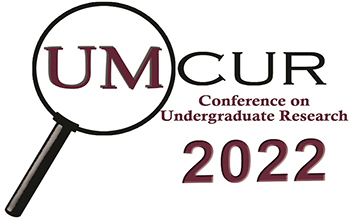Christianity's Influence on Thoughts Toward Freedom and Abolition Within the Enslaved Community
Presentation Type
Presentation
Faculty Mentor’s Full Name
Rachel Anderson
Faculty Mentor’s Department
History
Abstract / Artist's Statement
This essay will examine the numerous ways in which Christianity influenced the enslaved community’s attitudes toward freedom and abolition in the American South in the late 18th century to the American Civil War. This paper will also highlight the differences in the biblical interpretations of the white church and the Black church and how those interpretations contributed to differing attitudes toward freedom and abolitionism. This paper will utilize the historical analysis of biblical text, community stories, and slave narratives by individuals such as William J. Anderson and Harriet Jacobs. Religion, particularly Christianity, heavily influenced the enslaved community, was a huge contributor to the abolitionist movement, and continues to play a huge role in Black culture today. There were many contributing factors to the antislavery and abolitionist movements, both among freed people and the enslaved. Christianity is one. And it is important to see the extent to which the introduction, and practice, of the religion among those who were enslaved influenced and shaped their thoughts of freedom.
Category
Humanities
Christianity's Influence on Thoughts Toward Freedom and Abolition Within the Enslaved Community
UC 330
This essay will examine the numerous ways in which Christianity influenced the enslaved community’s attitudes toward freedom and abolition in the American South in the late 18th century to the American Civil War. This paper will also highlight the differences in the biblical interpretations of the white church and the Black church and how those interpretations contributed to differing attitudes toward freedom and abolitionism. This paper will utilize the historical analysis of biblical text, community stories, and slave narratives by individuals such as William J. Anderson and Harriet Jacobs. Religion, particularly Christianity, heavily influenced the enslaved community, was a huge contributor to the abolitionist movement, and continues to play a huge role in Black culture today. There were many contributing factors to the antislavery and abolitionist movements, both among freed people and the enslaved. Christianity is one. And it is important to see the extent to which the introduction, and practice, of the religion among those who were enslaved influenced and shaped their thoughts of freedom.
